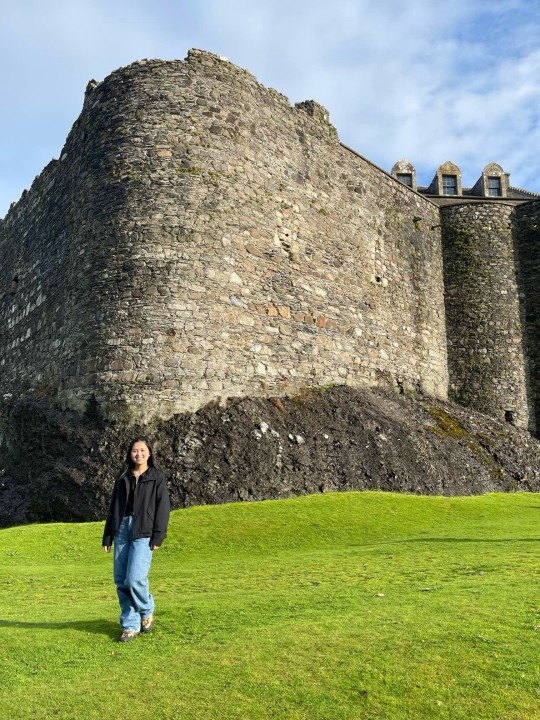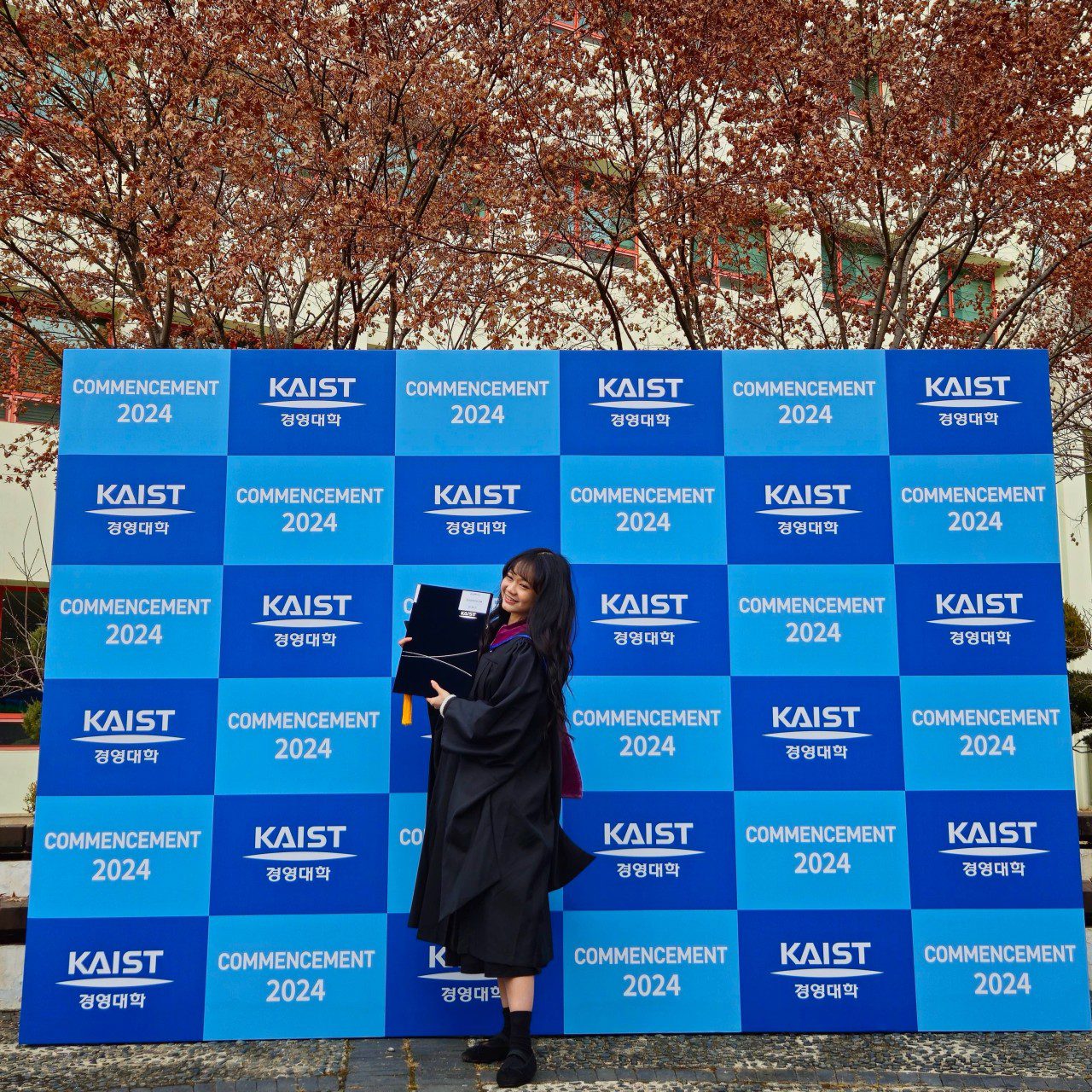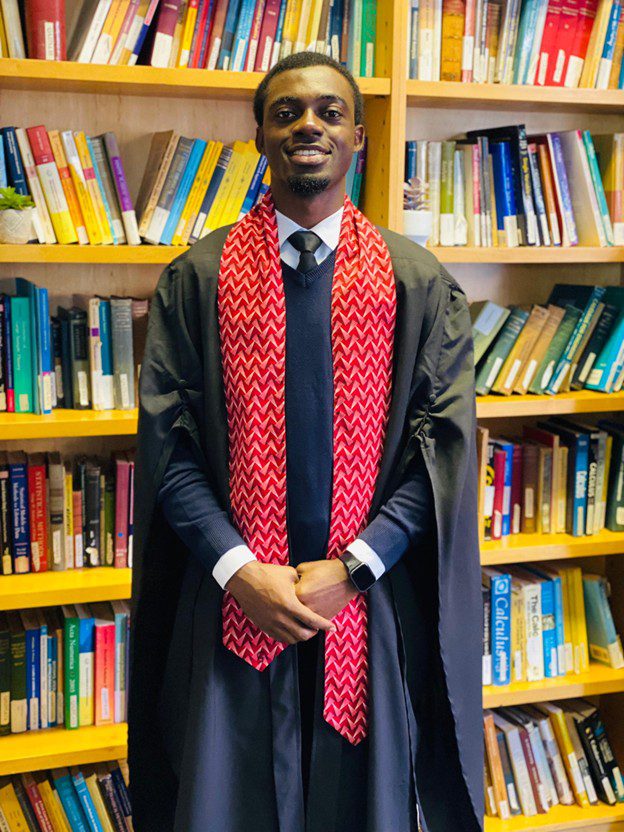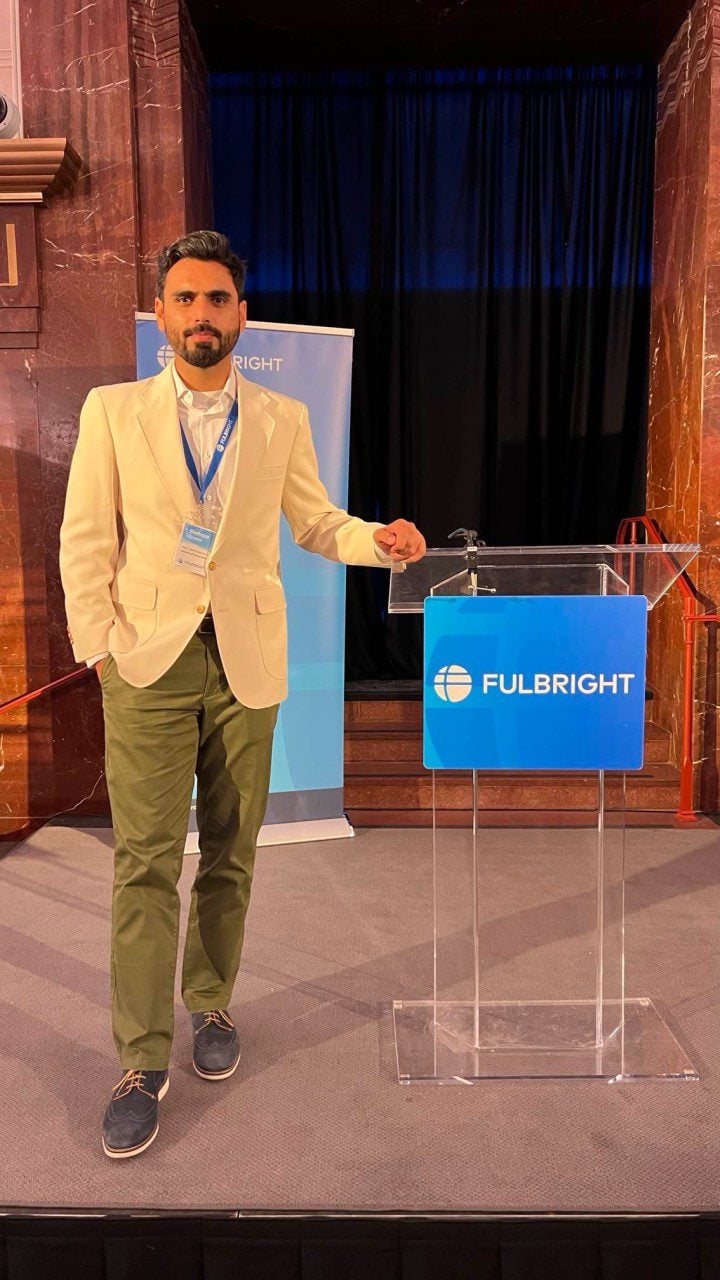Indonesian Student Secures Erasmus Mundus Scholarship for Aquaculture Master's Across Europe
Universities: Scottish Association of Marine Science (Scotland), The University of Crete (Greece), The University of Nantes (France)
Degree: MSc in Aquaculture, Environment and Society (ACES-STAR)
Previous education: The University of Melbourne, Australia
Scholarship: Erasmus Mundus Joint Master’s Programme in Aquaculture, Environment, and Society (EMJM ACES-STAR)
Social Media:
- LinkedIn: https://www.linkedin.com/in/verlynluk/

The Journey
Hi! Thank you for dropping by. My name is Verlyn Intan Luk and I’m from Indonesia :)
The ocean has always been my happy place. I’m deeply passionate about the marine environment that it led me to study marine biology at the University of Melbourne, Australia. And you know that feeling when you just achieved something and now all you want is to dream bigger and reach even higher? That’s exactly what I did – after graduating, I decided to apply for a scholarship program for postgraduate study. And I got in! I was awarded a full scholarship to the Erasmus Mundus Joint Master’s Programme in Aquaculture, Environment, and Society (EMJM ACES-STAR), a master’s program that allows students to pursue a two-year degree in different countries and is fully funded by the European Union.
Could you briefly discuss the Erasmus Mundus program you pursued and the specific field of study it focused on?
The Erasmus Mundus Joint Master’s Programme is a postgraduate programme funded by the European Union. The program is known as a ‘mobility and joint’ master’s program because students will complete each semester at a different university in a different country across Europe. The program I am currently enrolled in specifically is specialised in aquaculture, with Aquaculture, Environment, and Society (or often called ACES-STAR) as the name of the major. The program includes three semesters done in three different countries: Scottish Association for Marine Science (Oban, Scotland), The University of Crete (Crete, Greece) and The University of Nantes (Nantes, France), with the addition of an internship in the second semester and a dissertation project in the final semester, both based in the country of your choice. So in total, you’ll be studying in 3-5 different countries!
There are three pathways to getting into the program: fully funded, partially funded, and self-funded. The fully funded scholarships cover all the tuition fees and insurance, and provide students with 1,400 Euros per month for the entire two years.
Educational Background
I completed most of my education in Indonesia and had always dreamed of studying abroad. I then took a leap and moved to Australia. But since I did not come from an international school, I first had to complete a foundation study at Trinity College, Australia before being able to apply to universities in Australia.
I then pursued a Bachelor’s degree in Marine Biology at the University of Melbourne for three years. During my undergraduate studies, I completed research projects, one of which I had full control over, volunteered as a student ambassador, did a part-time job, volunteered in a lab assisting PhD students with their fieldwork, and interned in a coastal restoration lab. And most importantly, I had so much fun and loved what I did! And these experiences come in handy in my scholarship application.
Throughout both my foundation and undergraduate years, I learned to live independently, adapt to new environments and make friends with people from diverse cultural backgrounds (and Melbourne was truly helpful given its rich multiculturalism city!), all of which I believe are essential skills that have prepared me for my multi-country postgraduate experience.
How Did you Prepare to Apply for Erasmus Mundus Scholarship
Erasmus Mundus was the only postgraduate scholarship program I applied to. It was truly a go big or go home moment. Initially, I was almost certain that I would do a master’s in Australia, but due to financial constraints, this was no longer possible. Then, one of my past lecturers in Melbourne introduced me to the EMJM ACES-STAR program. It was a lightbulb moment, I knew instantly this was a perfect opportunity. A moral story from this is that sometimes, you just have to keep looking, and often, simply by talking to people, the right opportunities will eventually lie in front of you.
Knowing it is a prestigious and fully funded program, I knew I had to give it my all. I poured a great deal of effort and energy into it. I began preparing months before the application opened by drafting my motivation letter, updating my CV, and reaching out for letter of recommendations.
To make my application stand out, I focused on being genuine. Beyond strong grades and relevant experiences, I made sure my motivation letter really reflected my passion and personal journey. I made it personal and honest. I explained how I was inspired by the same lecturer who introduced me to the program, someone who is not only passionate about aquaculture but also cares about his students, and I wanted to follow in his footsteps.
One of the program coordinators also emphasised how they would look into the extracurriculars part in the applicant’s CV. This includes involvement in student clubs, leadership roles or sports, all of which help demonstrate resilience and soft skills. Looking back, I realised that many of the activities I took part in during high school and university turned out to be valuable investments that contributed to earning this scholarship. So aside from studying hard, get involved in clubs and do things you enjoy outside of class too!
How did the cost of living vary across the countries you studied in? Which country was the most affordable or expensive, and how did you manage financially?
Since this is only my second semester and so I’ve only studied in Scotland and Greece so far, I can only compare these two based on my personal experience. Overall, Greece is more affordable when it comes to rent and daily expenses, although groceries can be relatively pricey. From what I have gathered from previous cohorts though, Greece and France tend to be the most budget-friendly than Scotland. But it’s also worth noting that since our scholarship stipend is provided in euros, the exchange rate between the euro and the British pound makes living in Scotland feel more expensive.
Did you face any language barriers, and if so, how did you overcome them? Did the language of instruction change from one country to another?
I believe most Indonesians, including myself, learn English early in school, so I did not struggle with English per se. The real adjustment was more like going from using English occasionally in Indonesia to now using it full-time. Although I did find it challenging at first to understand different accents, but I adapted by constantly putting myself out there and engaging with people to become more familiar with them.
In Greece and France, all my classes are conducted in English, so I have not faced any language barriers in the classroom. However, moving between countries with different local accents and languages naturally takes some time to adjust to. In daily life though in Greece, I try to learn basic local phrases to help me get by (e.g., hello, thank you, sorry). The universities in Greece and France also offer language classes for students who want to become more fluent. I also found it helpful by talking to locals, they are usually happy to see you make an effort and are often eager to help you improve.
Would you recommend the Erasmus Mundus program to others? What advice would you give to someone considering this scholarship?
I would absolutely recommend this program as it opened so many doors for me that I did not even know existed. However, I do believe there are some considerations that need to be taken and it is important that it aligns with your personal and professional goals.
Are you happy with where you are now or are you looking to challenge yourself further? Do you already have a secure job back home or are you looking for something to get your foot in the door? Can you thrive under pressure? Will you be okay by moving around a lot? Will you be okay with being far from your family and friends back home?
This is a mobility program, which means relocating to a different country every semester. You will need to get used to packing and unpacking, applying for visas every now and then, adapting to new environments, and making new friends regularly. It can be intense, especially if you are not naturally social-savvy or do not thrive under pressure. But if you’re willing to grow and to take on challenges, this program offers an incredibly rewarding experience. The program has pushed me out of my comfort zone and helped me uncover a more confident, social side of myself. That said, it is a journey of both academic and personal transformation.
Looking back, would you have done anything differently during your time in the program?
Hmm I think I would try to make the most of it by exploring the countries more and making more friends from different countries and backgrounds. It is only for two years anyway, time will go by in the blink of an eye, so I need to make sure I experience the program to the fullest. Since I’m still in the program now, that’s exactly what I plan to start doing now! :)
Want to submit your
scholarship journey?
Submit Your Story Here!
More Scholarship Recipients

My name is Vania Estrellita Soegiarto, and I am from Indonesia. I pursued a Finance MBA at KAIST Business School in South Ko .... Read more

Hello, I’m Toyeeb Olamilekan Abubakar from Nigeria. I earned a Bachelor of Science degree in Statistics from the Universit .... Read more

My name is Shehryar Jafar, and I’m from Karachi, Pakistan. I’m currently a PhD student in Electrical Engineering at the .... Read more

Leave A Comment